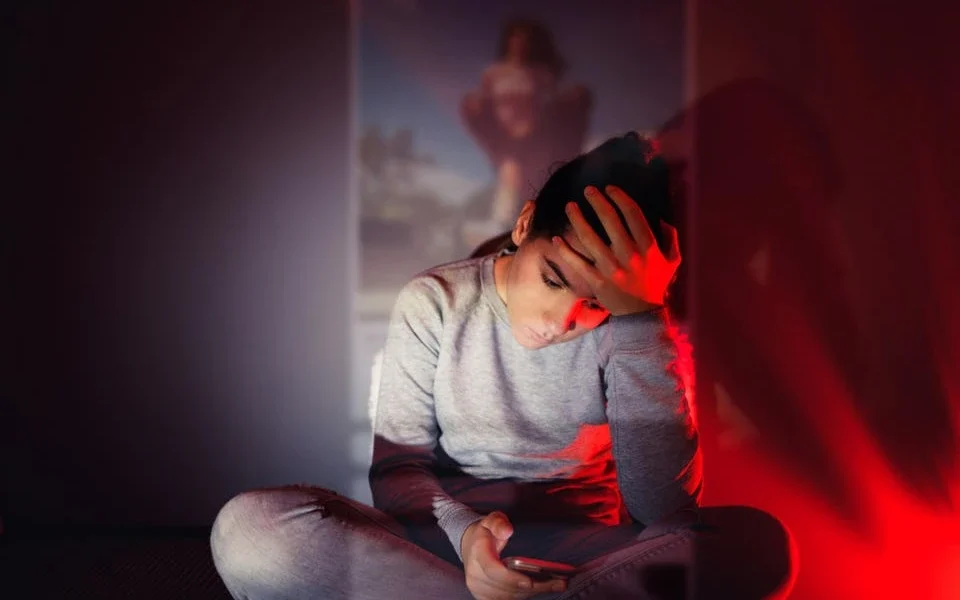Social Media is Accelerating Health Care Concerns Of Our Youth
Ever since the advent of the cell phone, human cognition and mental health year over year has been declining. Players like META have much to improve upon to demonstrate genuine corporate purpose.
The Impact of Social Media on Youth Mental Health
Social media and mental health challenges have become a growing concern in today’s society. Recent studies have shown a concerning correlation between the rise of social media usage and the decline in youth mental well-being.
One of the areas for concern is that the U.S. Surgeon General, Dr. Vivek Murthy has officially warned parents that there is enough evidence to show that social media is not safe for children and teens.
Teens who use social media for more than three hours a day face double the risk of depression and anxiety symptoms, which is particularly concerning given that the average amount of time that kids use social media is 3 1/2 hours a day. This data raises serious red flags about the impact of excessive social media usage on the mental health of young people.
The Alarming Statistics
Recent research from the Social Media and Youth Mental Health Advisory have found that 95% of teenagers ages 13-17 use a social media app, and more than a third say they use it “almost constantly.” Moreover, the average teen spends hours and 22 minutes looking at screens each day.
Since 2015, American teens’ screen time has increased by around 2 hours. In addition, teenage boys clock up nearly 1 hour more daily screen time than teenage girls. Looking specifically at social media, people under the age of 18 spend an average of 1 hour 47 minutes on TikTok every day.
These statistics paint a vivid picture of the extent to which social media has saturated the lives of today’s youth, leading to concerns about the consequent impact on their mental well-being.
The Negative Effects of Social Media
Research has shown that social media can perpetuate “body dissatisfaction, disordered eating behaviours, social comparison, and low self-esteem, especially among adolescent girls.” This underscores the profound negative effects that social media can have on young individuals, leading to a myriad of mental health challenges.
Nearly 1 in 3 adolescents report staying up until midnight or later, with most teenagers being glued to their smartphone and social media devices. These levels of addiction are alarming and very pervasive, impacting the mental health and overall well-being of adolescents.
The Legal Battle Against Social Media Giants
In October 2023, dozens of U.S. states sued META (Facebook) for harming young people and contributing to the youth mental health crisis by deliberately designing features on Facebook and Instagram that addict children to their platforms. This legal action highlights the growing recognition of the detrimental impact of social media on youth mental health.
We need to advance our community leadership, technology leaders, and policy makers to set up more guardrails to protect our children and help them stay safe and healthy. Currently, there are limited safety controls protecting our children and teenagers from the negative consequences of always being connected.
Potential Solutions and Regulatory Measures
Some good news came in December when the U.S. Federal Trade Commission recommended changes in how online companies can track and advertise to children, including turning off ads to children under 13. However, it is evident that these actions may not be sufficient to address the magnitude of the problem.
If we don’t curtail these addictions in a meaningful way, our future workforce will not know how to unplug, and the decline of critical thinking skills in humans will only accelerate. It is imperative that stronger and more comprehensive regulatory measures are put in place to mitigate the impact of social media on the mental health of our youth.
Conclusion
The accelerated decline in the mental health of our youth due to social media usage should be a cause for serious concern. As such, it is essential for all stakeholders, including parents, policymakers, and technology companies, to take proactive measures to safeguard the well-being of our younger generation.
The battle against the negative effects of social media on youth mental health is ongoing, and it requires a collective effort to implement effective solutions and regulations. Only through concerted action can we hope to mitigate the harm caused by excessive social media usage and pave the way for a healthier and more balanced future for our youth.
Source: forbes








No Comments